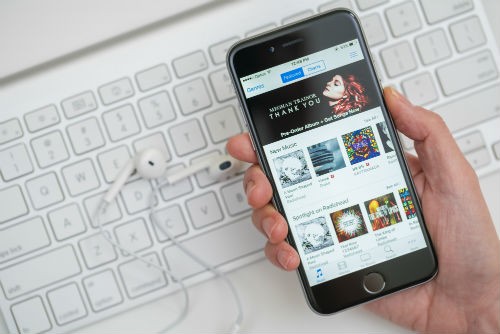Now, Apple is tracking your calls and emails to see if you’re trustworthy

None of us like fraud. No matter where it happens it’s not a good thing, and the damage it can lead to can vary from the mostly innocuous to the downright devastating.
We see fraud in online reviews and with social media accounts. It also shows up in purchases and other online transactions.
With that in mind, if given the chance it’s likely most of us would be fine with anything that combats the issue. Apple might test that theory, though, as something they are instituting to try and take on fraud at least toes the privacy line.
How far is too far?
Apple devices have gone through a big change recently with the release of iOS 12, and no doubt some features have garnered more attention than others. But one difference that may have slipped past involves the iTunes Store privacy page, which explains a new way of trying to battle fraud.
It reads:
“To help identify and prevent fraud, information about how you use your device, including the approximate number of phone calls or emails you send and receive, will be used to compute a device trust score when you attempt a purchase. The submissions are designed so Apple cannot learn the real values on your device. The scores are stored for a fixed time on our servers.”
What does that mean?
Apple is going to use your email and call data to try and create a score with which it will determine how trustworthy you are. The idea is to help prevent fraudulent purchases as well as reviews and accounts because there will be a better understanding of who you are and what you do.
Therefore, if something seems off — like a review on a product you would likely never purchase or an order for something that seems out of character, Apple would know. At the same time, if your account is leaving what would appear to be an abnormal number of reviews, it could be recognized as fraudulent.
Fun Fact: The iTunes store opened in April 2003 and as of January 2017 held nearly 40 million songs, 2.2 million apps, 25,000 TV shows and 65,000 movies.

Photo from Dreamstime.com
So…privacy?
Apple noted that the information gleaned will be designed in a way that disguises your device’s real values and that it will only remain on their servers for a limited time before being removed. But during a time when people are paying more attention to their online privacy than ever, it is certainly the type of change that will be met with questions, if not downright anger.
It is important to point out, though, that while there has been plenty of talk about privacy — or a lack of, with many sites and manufacturers — Apple has rarely come up as part of the conversation. That’s not to say they don’t have questionable practices, just that they for the most part have seemed to stay above the fray.
That was by design, according to CEO Tim Cook back in June. During a Fortune CEO Initiative, he said they felt “the building of the detailed profile on people likely would result in significant harm over time,” which would explain his company’s view on privacy.
But in the name of detecting and rooting out fraud, they may be willing to sacrifice a bit of that generally benevolent approach.
What to do?
There doesn’t seem to be an “opt-out” solution to this new development from Apple. Perhaps the only thing to do is to stop using it, but switching to an Android phone may not be in your budget or in line with your technology preferences. We’ll see how Apple proceeds after all the press — maybe they’ll include an opt-out setting later.
Tags: Android, Apple, apps, devices, phone, privacy, reviews, social media
